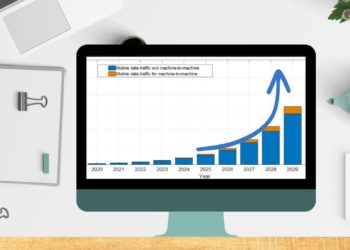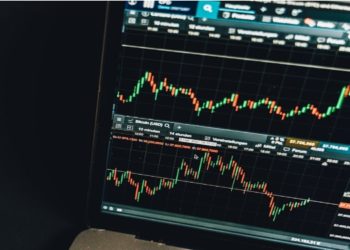In the fast-paced world of digital assets, choosing the optimal exchange platform can make or break your trading experience and investment security. Whether you’re just beginning your cryptocurrency journey or looking to enhance your existing trading approach, this in-depth guide will provide you with crucial insights for making well-informed decisions. Let’s delve into the key elements that separate top-tier exchanges from subpar alternatives.
Exchange Platforms: A Tale of Two Systems
The cryptocurrency landscape offers two distinct trading environments, each bringing unique benefits to the table. Centralized exchanges (CEXs) function similarly to traditional financial platforms, delivering a seamless experience with robust oversight and dedicated support teams. These platforms shine in terms of user interface and typically deliver superior liquidity, making them particularly appealing to newcomers and large-volume traders.
In contrast, decentralized exchanges (DEXs) represent blockchain innovation at its finest. Operating through smart contracts, they facilitate direct user-to-user transactions without middlemen. While the learning curve might be steeper, DEXs provide unmatched control over your assets and enhanced privacy features. Many investors appreciate that there’s often a crypto exchange no minimum deposit requirement on DEXs, making them accessible to all investment levels.
Essential Requirements for Getting Started
Understanding the initial setup process is vital for a smooth trading experience. Leading exchanges implement comprehensive verification systems through Know Your Customer (KYC) protocols. Current government-issued photo ID, recent proof of address, an active mobile number for enhanced security setup, and a dedicated email address with robust password protection are standard requirements. Starting funds requirements vary by platform and region.
Higher-tier trading accounts typically need additional verification, such as supplementary forms of identification, documentation of income, and live verification sessions. These requirements serve as protective measures for both users and platforms while ensuring regulatory compliance across jurisdictions.
Security: Your Top Priority
In cryptocurrency trading, security breaches can result in irreversible losses. Premium exchanges deploy multiple protective measures including enterprise-level cold storage with distributed signature requirements and independent security audits. Advanced authentication systems, including biometric verification, comprehensive digital asset protection insurance, and 24/7 threat monitoring with automated detection are standard features of reputable platforms. Users should maximize available security features, implement hardware wallet solutions, and conduct regular account reviews.
Primary Exchange Criteria:
– Security measures and detailed audit history
– Available trading pairs and market depth
– Competitive fee structure and volume discounts
– Interface quality and user experience
– Mobile platform functionality
– Customer support responsiveness
– Regulatory compliance status
– Platform reliability metrics
Secondary Evaluation Factors:
– Advanced trading tools and features
– Community engagement opportunities
– Innovation and development track record
– Future expansion plans
– Market maker relationships
– Institutional service offerings
– Industry reputation
– Strategic partnerships
Advanced Trading Environment
A sophisticated trading environment should provide customizable workspace configurations and professional-grade chart analysis tools. Full-featured mobile trading solutions ensure continuous market access, while detailed market depth visualization aids in strategic decision-making. The platform should offer advanced order execution options and lightning-fast trade processing capabilities.
Trading possibilities must include diverse cryptocurrency trading pairs with robust market liquidity. Flexible margin trading options and yield generation through staking appeal to different trading styles. Custom technical analysis capabilities and developer-friendly API access enable strategy automation and enhancement.
Understanding Fee Structures
Clear comprehension of cost implications significantly affects trading success. Progressive fee schedules based on volume, transparent deposit fee documentation, and optimized withdrawal cost structures are essential considerations. Competitive currency conversion rates and reward programs for active traders can substantially impact overall profitability.
Payment flexibility remains crucial, with platforms needing to support multiple currencies and integrated card payment solutions. Strategic payment partnerships and international transfer capabilities ensure smooth fund movement. Regional peer-to-peer options and quick deposit alternatives provide additional convenience.
Regulatory Framework and Innovation
A properly regulated exchange offers essential safeguards through verified licensing credentials and open organizational structure. Independent financial reviews and structured conflict resolution processes protect user interests. The platform should demonstrate readiness for scalability solutions, including layer-2 integration and cross-chain compatibility. Their approach to emerging protocols and infrastructure upgrades provides insight into long-term viability.
Technology integration represents another crucial aspect of exchange evaluation. Modern platforms should demonstrate clear roadmaps for smart contract functionality, DeFi protocol compatibility, and Web3 ecosystem integration. The ability to adapt to emerging trends while maintaining core trading functionality distinguishes leading exchanges from their competitors.
Customer Care and Market Access
Quality support services enhance the trading journey through round-the-clock multilingual assistance and multiple communication channels. Extensive learning materials and educational content libraries help traders develop their skills. A vibrant user community and regular trading seminars foster knowledge sharing and improvement.
Consider the exchange’s international presence through multi-language support and global regulatory compliance. Regional market access and local banking partnerships facilitate seamless trading across borders. Cross-border trading options and regional customer support ensure a comprehensive trading experience.
Making Your Informed Choice
When selecting an exchange, evaluate your personal trading objectives, security preferences, and regional availability. Cost considerations, market access, and platform stability significantly impact trading success. Interface accessibility and mobile functionality determine daily usability, while support quality and scalability potential influence long-term satisfaction.
Start with minimal trading activity to familiarize yourself with the platform before increasing your involvement. Remember that cryptocurrency markets constantly evolve, requiring platforms to adapt to changing conditions. Stay updated on emerging security standards, regional regulatory shifts, and platform enhancements to ensure your chosen exchange continues meeting your needs.
Your success in cryptocurrency trading largely depends on your chosen tools and platforms. By thoroughly examining each aspect discussed in this guide, you’ll be positioned to select an exchange that not only serves your current requirements but also supports your long-term growth in this dynamic market environment.










































































